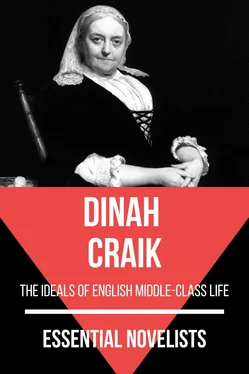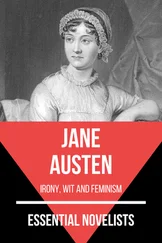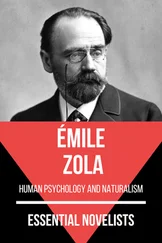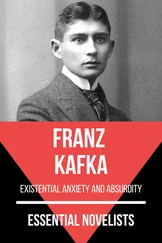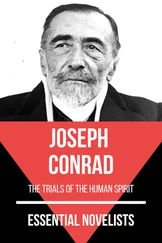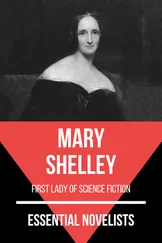The little old lady’s eyes brightened into something beyond mere kindness as she looked at him.
“Mr. Halifax, I thank you for that ‘plain truth.’ Truth is always best. Now for mine. I had heard you were a tradesman; I found out for myself that you were a gentleman. I do not think the two facts incompatible, nor does my husband. We shall be happy to see you at our house at all times and under all circumstances.”
She offered him her hand. John bowed over it in silence, but it was long since I had seen him look more pleased.
“Well, then, suppose you come this evening, both of you?”
We assented; and on her further invitation John and I and the little old lady walked on together.
I could not help watching Mrs. Jessop with some amusement. Norton Bury said she had been a poor governess all her days; but that hard life had left no shadow on the cheerful sunset of her existence now. It was a frank, bright, happy face, in spite of its wrinkles, and its somewhat hard Welsh features. And it was pleasant to hear her talk, even though she talked a good deal, and in a decidedly Welsh accent. Sometimes a tone or two reminded me slightly of — Ay, it was easy to guess why John evidently liked the old lady.
“I know this road well, Mr. Halifax. Once I spent a summer here, with an old pupil, now grown up. I am going today to inquire about her at the Mythe House. The Brithwoods came home yesterday.”
I was afraid to look at John. Even to me the news was startling. How I blessed Mrs. Jessop’s innocent garrulousness.
“I hope they will remain here some time. I have a special interest in their stay. Not on Lady Caroline’s account, though. She patronizes me very kindly; but I doubt if she ever forgets — what Tom says I am rather too proud of remembering — that I was the poor governess, Jane Cardigan.”
“Jane Cardigan!” I exclaimed.
“What, Mr. Fletcher, you know my name! And really, now I think of it, I believe I have heard yours. Not from Tom, either. It couldn’t possibly be-Yes! it certainly was — How strange! Did you ever hear tell of a Miss Ursula March?”
The live crimson rushed madly over John’s face. Mrs. Jessop saw it; she could not but see. At first she looked astounded, then exceedingly grave.
I replied, “that we had had the honour of meeting Miss March last summer at Enderley.”
“Yes,” the old lady continued, somewhat formally. “Now I recollect, Miss March told me of the circumstance; of two gentlemen there, who were very kind to her when her father died; a Mr. Fletcher and his friend — was that Mr. Halifax?”
“It was,” I answered: for John was speechless. Alas! I saw at once that all my hopes for him, all the design of my long silence on this subject, had been in vain. No, he had not forgotten her. It was not in his nature to forget.
Mrs. Jessop went on, still addressing herself to me.
“I am sure I ought, on behalf of my dear pupil, to offer you both my warmest thanks. Hers was a most trying position. She never told me of it till afterwards, poor child! I am thankful her trouble was softened to her by finding that STRANGERS” (was it only my fancy that detected a slight stress on the word?) “mere strangers could be at once so thoughtful and so kind.”
“No one could be otherwise to Miss March. Is she well? Has she recovered from her trial?”
“I hope so. Happily, few sorrows, few feelings of any kind, take lasting hold at eighteen. She is a noble girl. She did her duty, and it was no light one, to him who is gone; now her life begins anew. It is sure to be prosperous — I trust it may be very happy. — Now I must bid you both good-bye.”
She stopped at the gates of the Mythe House; great iron gates, a barrier as proud and impassable as that which in these times the rich shut against the poor, the aristocrat against the plebeian. John, glancing once up at them, hurriedly moved on.
“Stay; you will come and see us, Mr. Halifax? Promise!”
“If you wish it.”
“And promise, too, that under all circumstances you will tell me, as you did this morning, the ‘plain truth’? Yes, I see you will. Good-bye.”
The iron gates closed upon her, and against us. We took our silent way up to the Mythe to our favourite stile. There we leaned — still in silence, for many minutes.
“The wind is keen, Phineas; you must be cold.”
Now I could speak to him — could ask him to tell me of his pain.
“It is so long since you have told me anything. It might do you good.”
“Nothing can do me good. Nothing but bearing it. My God! what have I not borne! Five whole months to be dying of thirst, and not a drop of water to cool my tongue.”
He bared his head and throat to the cutting wind — his chest heaved, his eyes seemed in a flame.
“God forgive me! — but I sometimes think I would give myself body and soul to the devil for one glimpse of her face, one touch of her little hand.”
I made no answer. What answer could be made to such words as these? I waited — all I could do — till the paroxysm had gone by. Then I hinted — as indeed seemed not unlikely — that he might see her soon.
“Yes, a great way off, like that cloud up there. But I want her near — close — in my home — at my heart; — Phineas,” he gasped, “talk to me — about something else — anything. Don’t let me think, or I shall go clean mad.”
And indeed he looked so. I was terrified. So quiet as I had always seen him when we met, so steadily as he had pursued his daily duties; and with all this underneath — this torment, conflict, despair, of a young man’s love. It must come out — better it should.
“And you have gone on working all this while?”
“I was obliged. Nothing but work kept me in my senses. Besides”— and he laughed hoarsely —“I was safest in the tan-yard. The thought of her could not come there. I was glad of it. I tried to be solely and altogether what I am-a ‘prentice lad — a mere clown.”
“Nay, that was wrong.”
“Was it? Well, at last it struck me so. I thought I would be a gentleman again — just for a pretence, you know — a dream — a bit of the old dream back again. So I went to London.”
“And met the Jessops there?”
“Yes; though I did not know she was Jane Cardigan. But I liked her — I liked my life with them. It was like breathing a higher air, the same air that — Oh, Phineas, it was horrible to come back to my life here — to that accursed tan-yard!”
I said nothing.
“You see, now”— and that hard laugh smote me to the heart again —“you see, Phineas, how wicked I am growing. You will have to cut my acquaintance presently.”
“Tell me the rest — I mean, the rest of your life in London,” I said, after a pause. “Did you ever hear of her?”
“Of course not; though I knew she was there. I saw it in the Court Circular. Fancy a lady, whose name was in the Court Circular, being inquired after by a tanner’s lad! But I wanted to look at her — any beggar might do that, you know — so I watched in streets and parks, by theatre-doors at night, and by church-doors on Sunday mornings; yet I never saw her once. Only think, not once for five whole months.”
“John, how could you tell me you were happy?”
“I don’t know. Perhaps because of my pride; perhaps because — Ah, don’t look so wretched! Why did you let me say all this? You are too good for such as I.”
Of course I took no heed of idle words like these. I let him stand there, leaning against the stile, now and then grasping it with his nervous, muscular hands, as if he would tear it down; then I said quietly:
“What do you intend to do?”
“Do? Nothing! What can I do? Though sometimes a score of wild plans rush into my mind, such as to run away to the Indies, like that young Warren Hastings we were talking of, come back twenty years hence a nabob, and — marry her.”
Читать дальше
